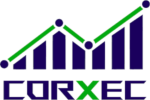Member Managed vs. Manager Managed LLC
In a member-managed LLC, all members actively participate in decision-making and management, while in a manager-managed LLC, designated managers handle day-to-day operations and strategic direction.
Home » Resources » Compare Entity Types » Member Managed vs. Manager Managed LLC
Differences between
Member Managed and Manager Managed LLC
| Member Managed LLC | Manager Managed LLC | |
|---|---|---|
| Ownership |
|
|
| Liability | Members generally have limited liability protection, shielding their personal assets from business debts and liabilities. | Members enjoy limited liability protection similar to member-managed LLCs, regardless of their involvement in management. |
| Management | All members have the authority to participate in the management and decision-making processes of the LLC. | Management authority is vested in one or more designated managers, who may or may not be members of the LLC. |
| Formalities | Typically involves less formalities, as decision-making and management responsibilities are shared among members. | May require more formalities in terms of documenting managerial decisions and authority, as managers hold specific roles and responsibilities. |
| Transferability | Transfer of membership interests may require the consent of all members, depending on the operating agreement. | Transfer of ownership interests may be more straightforward, as management authority is separate from ownership. |
| Flexibility | Offers flexibility in decision-making and management, with all members having a voice in the operations of the LLC. | Provides flexibility in terms of management structure, allowing for clear delegation of managerial responsibilities. |
| Taxation | Taxed similarly to partnerships, with profits and losses passing through to individual members' tax returns. | Taxation remains the same as member-managed LLCs, as the management structure does not impact tax treatment. |
| Continuity | Continuity of the LLC may be affected if key members leave or new members join, potentially impacting decision-making and management. | Management continuity is more stable, as designated managers maintain control over operations regardless of changes in membership. |
| Compliance | Compliance requirements may vary based on the operating agreement and state regulations but are generally straightforward. | May require stricter compliance measures to ensure that designated managers fulfill their duties and responsibilities. |
| Credibitlity | Perception of credibility may vary based on the composition and involvement of members in the management of the LLC. | Often perceived as more structured and professionally managed, which can enhance credibility with investors and stakeholders. |
| Costs | Costs associated with member-managed LLCs may be lower due to the shared management responsibilities among members. | Costs may be slightly higher due to the potential need to compensate designated managers for their management roles. |
Considerations for Choosing Member managed or manager managed LLC
- Level of Involvement: Evaluate how involved each member wants to be in the daily operations and decision-making processes of the LLC.
- Expertise and Experience: Consider the expertise and experience of the members and whether they are capable of effectively managing the LLC’s affairs.
- Leadership Structure: Determine whether a hierarchical leadership structure with designated managers aligns better with the LLC’s goals and objectives.
- Ease of Decision-Making: Assess whether a member-managed structure, where all members have a say, or a manager-managed structure, which streamlines decision-making, is more suitable for the LLC’s operations.
- Clarity in Roles: Ensure that roles and responsibilities are clearly defined, whether among members in a member-managed LLC or between members and managers in a manager-managed LLC.
- Flexibility: Consider the level of flexibility needed in adapting to changes within the LLC, such as adding or removing managers or members.
- Alignment with Business Needs: Choose the management structure that best aligns with the LLC’s business model, industry requirements, and long-term strategic plans.
- Legal and Regulatory Requirements: Understand the legal and regulatory requirements associated with each management structure, including any specific provisions outlined in the LLC operating agreement.
- Operational Efficiency: Determine which structure promotes operational efficiency and effectiveness, considering factors such as communication, accountability, and resource allocation.
- Future Growth and Expansion: Anticipate the LLC’s future growth and expansion plans and select a management structure that can accommodate scalability and evolving business needs.
Remember to consult with professionals, such as legal and financial advisors, to ensure that you’ve covered all legal and regulatory aspects specific to your location and industry.

Why Choose CorXec?
- Fast Reliable & Hassle-Free Experience
- Founded by an entrepreneur who pioneered many startups successfully.
- Upfront Pricing, No hidden charges, No Surprises
- Our promise of 100% Satisfaction Guarantee

